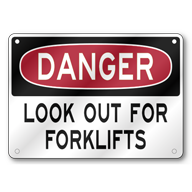
Pain caused by a concussion is difficult to describe. It is difficult to remember events before or after the injury. Looks dazed or even dazed. forgets about an event, a meeting, or even a sport, score or the opposing team.
Seems dazed or confused. Answers questions slowly. Answers questions with little understanding. Cannot concentrate or follow directions. Makes impulsive decisions.
These are symptoms of a concussion. While these symptoms can occur at any time during the game, they are triggered by an effect on the brain. On a blow to the head, the skull does not absorb as many blows as it should. This is the moment when signs of concussion begin to appear.
Some symptoms include lightheadedness, dizziness, blurred vision, feeling disoriented, memory loss, a feeling of stuffy ears, and nausea, vomiting, and a feeling of choking. These symptoms can be mild or severe and can vary in severity. Some people may experience symptoms for several days, while others may experience symptoms for only a few hours.
The most common signs and symptoms of a concussion include loss of memory and concentration. People who have suffered a concussion may also experience headaches, fatigue, depression, anxiety, and irritability. The physical signs and symptoms of a concussion vary from athlete to athlete and may differ from person to person. If you suspect you may be having concussion symptoms, see your doctor.
While the physical symptoms of a concussion can be confusing, they are not dangerous. It's just a body that adjusts to itself after being damaged. Some concussion symptoms can mimic those of a heart attack. You may experience chest pain, weakness, numbness in your limbs, and an irregular heartbeat.
Physical therapy can help patients recover faster. It is important to start therapy as soon as the first signs and symptoms of a concussion appear. Physiotherapy will give the patient the opportunity to rest and recover from the injury. A physical therapist will help the patient learn to regulate muscles and improve balance.
Therapy can also help the patient overcome pain. Physical therapy can help the patient learn to cope with stress. pressure, such as trying to remember to do something while being distracted. pain and anxiety.